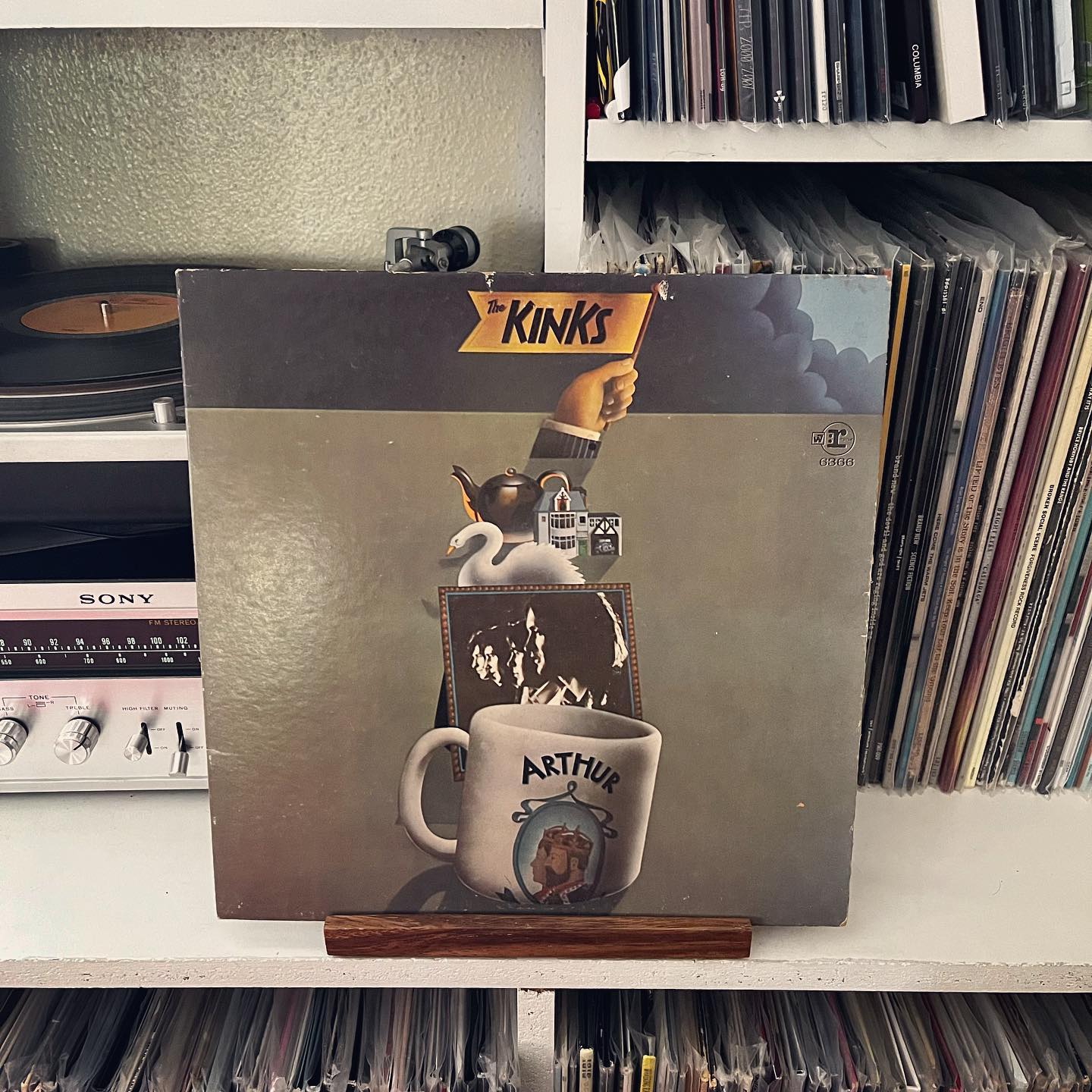
There’s maybe no band that captures the imagination of speculative music historians than the Kinks. In the early days of the British Invasion, they had a raw energy that propelled their songwriting beyond their peers. Many have made the claim that had they not been blacklisted by the American Federation of Musicians on their first US tour for the exact sort of destruction people loved the Who for a year later, they would have surpassed even the Beatles (I have made this before).
This could have destroyed a lesser band. Instead, The Kinks, led by brother duo Ray and Dave Davies, put their heads down and made several of the best pop rock albums in their native UK, not finding much success across the pond until “Lola” in 1970, when the ban had run its course.
It’s a personal policy of mine that if I find any of their records from this period in a record store, it’s an instant buy. It’s never steered me wrong before, and in the case of Arthur (Or the Decline and Fall of the British Empire), it paid off exceptionally well.
By 1969, the musical landscape the Kinks arose from had been transmuted about a dozen times. Merseybeat and R&B had exploded into Baroque pop, psychedelic, blues rock, hard rock, progressive rock, and whatever you want to call what the Stooges were doing (protopunk is useful in retrospect, but it would have been nonsense at the time.
While their British Invasion colleagues were both pioneering and jumping between these trends (the Rolling Stones maybe had no business making a psychedelic record), the Kinks feel like a lighthouse shining unwaveringly in the storm. They obviously heard and absorbed the music going on around them—how could you not?—but their own trajectory was steadfast.
While Arthur is certainly more sophisticated than “You Really Got Me Now” or “Dedicated Follower of Fashion,” Ray Davies’ sensibilities are unmistakable, even on the sprawling chameleon of a track “Australia,” which has a few rounds of catchy verse-chorus pop before becoming a freeform jam in the final minutes. “Shangri-La” is a gorgeous bit of symphonic pop, but it retains some of the hard edges that defined their electrifying early work.
Davies’real talent though might be his ability to write concept albums made up of songs that can stand out of context. While Arthur tells the story of a man who becomes disenchanted with the despair of post-war Britain and emigrates to the paradise of Australia with his family. The story is inspired by their older sister Rose, who moved to Australia herself with her husband Arther (which inspired the song “Rosy Won’t You Please Come Home” from Face to Face).
The songwriting is subtle enough that it’s impossible to know exactly how Davies feels about it. His descriptions of Australia are sardonically idyll, but his criticisms of Britain are positively scathing. “Mr. Churchill Says” is especially difficult to parse. It holds up the wartime resolve of the British people and the brashness of the Prime Minister in a light that shifts from admirable to cartoonish depending on the angle.
The instrumental performances are similarly nuanced, shifting between different styles and moods—sometimes wildly so—with blinding speed. Single songs pack more ideas than most bands put into entire albums, all played deftly by the band and masterfully balanced by Ray Davies’ production.
But despite all of this musical and lyrical complexity, Arthur is first and foremost a pop record. It’s rewarding on the most superficial listen, blooming with layers the deeper you dive in. And in that way, it works as a fitting microcosm of the Kinks at large. While they might seem like a fine enough pop group, deeper looks into their discography reveal one of the most sophisticated groups in rock and roll history—no matter how many alternate timelines you try to draw out.